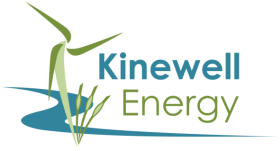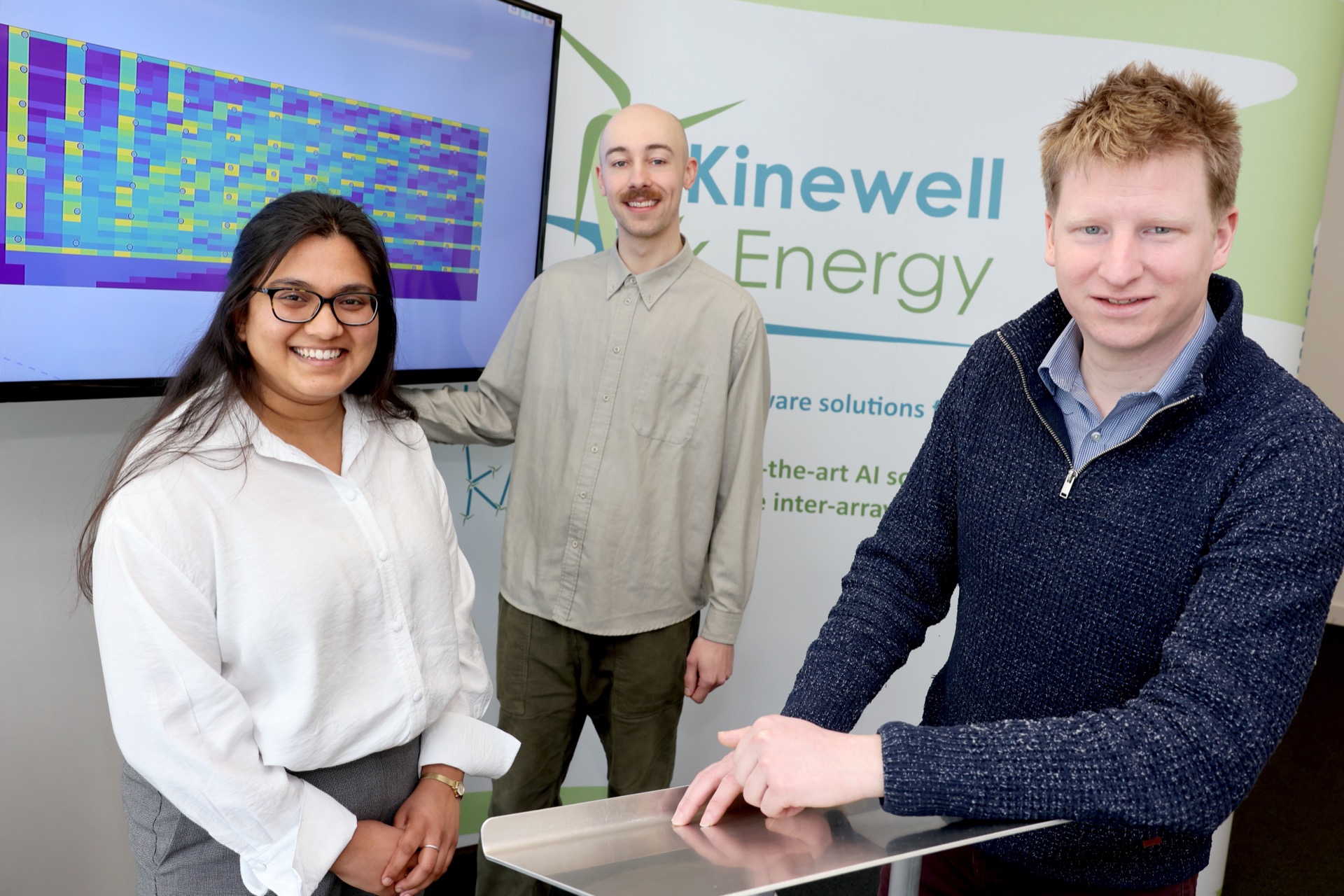Kinewell Energy has unveiled a ground-breaking new-to-market heatmapping software product backed by three global energy giants.
Officially launched concurrently at the All-Energy & Decarbonise conference in Glasgow and the VentureFest Innovation conference in Newcastle this week, the new Heatmap Software Module will help to improve the seabed surveying process during the planning phase of offshore wind farms.
Building on the success of its market leading KLOC software, which optimises offshore wind inter-array cable layouts, the heatmapping module was initially developed to improve the seabed surveying process during the planning phase of one of the USA’s largest offshore wind farms and has since been used with two further global energy giants, supporting projects cumulatively totalling over 6.5 GW of wind energy capacity.
The probabilistic heatmapping software allows developers to swiftly identify which areas of a seabed require detailed surveying – despite the early project uncertainties that exist when surveying takes place – enabling developers to survey less of the site while still focusing on the most important areas where inter-array cable is most likely to be laid. This helps developers significantly reduce overall project costs and lead times by eliminating the time and resource spent surveying swathes of undevelopable seabed.
Seabed surveys are a key part of the development phase of an offshore wind farm, with the assessments starting around five years before construction and cost anywhere up to £8 million for a 1GW wind farm.
Dr Andrew Jenkins, founder and CEO, said: “As one of the most innovative businesses in our region, our team thrive on developing solutions to overcome difficult challenges. We were thrilled when one of the largest offshore wind farms in the USA set us this challenge of identifying the most likely locations where inter-array cable might be placed despite such early project uncertainties.
“The result of our teams efforts has been incredible. Not only has it enabled developers to produce more targeted seabed surveys, but it has also supported the optimisation of export system routing, reducing wind farm development costs while saving hundreds of design hours in the process.
“The need for the new probabilistic heatmap solution is clear, evidenced by three global energy giants utilising it on projects cumulatively totaling over 6.5 GW of wind energy capacity. We are now looking forward to rolling out the heatmap capability to our global Software as a Service (SaaS) client base as part of our wider KLOC inter-array cable layout optimisation software offering.”
The development of the software has been enabled by match-funding from the North of Tyne Combined Authority’s (NTCA) Technology, Innovation and Green Growth for Offshore Renewables (TIGGOR) programme administered by the Offshore Renewable Energy (ORE) Catapult.
Dr Graham M. Smith, TIGGOR Programme Manager at the Offshore Renewable Energy (ORE) Catapult, said: “Our mission is to accelerate the creation and growth of UK companies in the offshore renewable energy sector, and Kinewell’s TIGGOR project is a perfect example of this in action.
“Since its launch, Kinewell Energy has played a huge role in accelerating the roll-out of offshore wind farms across the globe through its innovative software solutions and its new KLOC Heatmap Software Module is continuing that trend.
“We are thrilled to have been able to fund the project through the TIGGOR programme – funded by the North of Tyne Combined Authority (NTCA) – and to see it not only rolled out across the globe, but also creating skilled jobs right here in the UK. It’s a fantastic success story for the sector and the North East.”
The KLOC Heatmap Software Module software is also compatible with Kinewell’s market-leading KLOC software solution, which has helped deliver some of the world’s largest offshore wind farm developments and is being utilised at Berwick Bank in the outer Firth of Forth.
Initially launched in 2015, KLOC helps optimise the most economical cable layouts for developers. By utilising both solutions, it not only saves time and money on surveying, but also on the overall wind farm design, reducing project development times.
“The average construction time of an offshore wind farm is seven to 11 years, so if we are to keep global warming to no more than 1.5°C – as outlined in the Paris Agreement – then we must do absolutely everything we can to accelerate the development of offshore wind farms and we’re proud to be playing a key role in helping achieve that,” Dr Jenkins added.
“Since 2015, our team have delivered hundreds of millions of pounds of savings to offshore wind developers across the globe through inter-array cable layout optimisation, both through consultancy and by licensing our technology for others to use in-house. The introduction of our new heatmapping capability will see us continue to build on this success and create more high-value innovative green jobs within the North East.”
The new-to-market heatmapping solution is subject to Kinewell Energy’s recently filed patent application.




